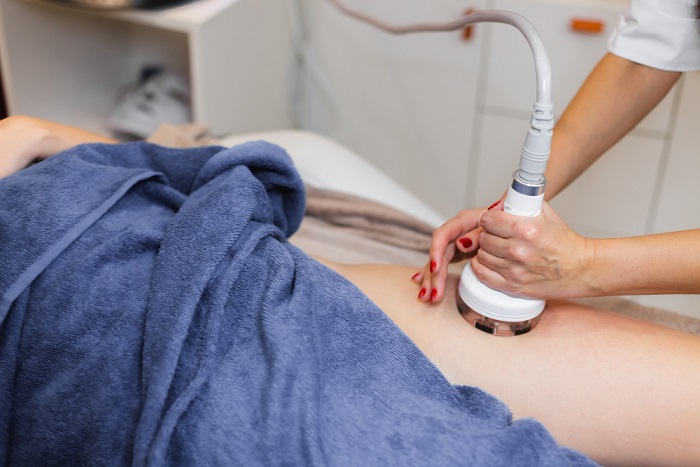If stats are to be believed a large percentage of the population is diagnosed with vertigo conditions. The majority of people suffering from vertigo mostly lie between the age group of 40 to 65 years, but it can be diagnosed in anyone irrespective of age and gender.
Firstly, let me clear this out vertigo is not an ailment rather a symptom of various underlying causes that results in causing recurring episodes of vertigo bouts. An inflammation, infection, injury, or disorder in the inner ear, nerve pathways, or brain stem results in causing vertigo spells along with loss of equilibrium.
Apart from dizzy spells, abnormal jerking of eyes, sweating, headaches, nausea, and vomiting are often accompanied by vertigo. It becomes difficult to live with such a condition as vertigo bouts appear suddenly without any warning signs making it difficult to accomplish daily chores. Simple activities such as walking, standing, jogging, bending forward, or standing up after long sitting seem a tiring task. It can even prove to be a life-threatening task for some if it appears amid traffic or while driving a vehicle or lifting heavyweights.
A person experiencing vertigo feels like whether he is spinning or nearby surroundings is spinning all by itself, which in reality is not in motion. Mild vertigo conditions are treated well at home by following certain vertigo home remedies and practicing certain repositioning maneuvers. If symptoms do not seem to ease and you are experiencing vertigo bouts quite frequently, it is advised to seek medical help. Consult an expert neurologist, and he/she will diagnose your condition closely by seeking your complete medical history and ask you to undergo a vertigo test such as a VNG test to examine the accurate underlying cause of vertigo. Once you are diagnosed, he will suggest the Bestvertigo treatment and prescribe vertigo medications to ease spinning sensations and alleviate vertigo symptoms completely.
What is the VNG Test?
As medical technology advances, VNG known as the Videonystagmography test came into existence. VNG test is one of the most advanced tests carried out by doctors for diagnosing balance disorders. The VNG test willtake about 60–90 minutes approximately to set you free.
It tracks & analyzes involuntary eye movements, the inner ear & portions of the brain.
The VNG test closely examines the patient’s eye movements whether it’s slow, fast, or steady. When a brain receives confusing signals from the inner ear it makes a person feel off-balance thus resulting in abnormal eye jerking which is tracked during the vertigo test.
Doctors generally recommend VNG tests to patients who experience difficulty in maintaining balance and feel dizzy all of a sudden to diagnose the underlying cause.

Videonystagmography test works on a simple as well as the painless procedure to diagnose vertigo conditions.
VNG test to diagnose vertigo works on the latest technology; it uses the camera to track the eye movement to identify the positional changes. If a person is experiencing any disorder in maintaining balance, it results in quick eye movements. Doctors generally advise undergoing a VNG test to examine such an issue.
A patient is asked to wear a pair of glasses by the doctor during a VNG test. The camera is attached to the eye gear. The inbuilt camera helps in tracking and recording the eye movements of the patient. The moving lights are even traced by the camera. To determine whether the balance system responds to temperature stimulation or not, cool and warm air is inserted into the ear of the patient during a VNG test.
It is generally recommended to undergo a hearing test before the VNG test as hearing and balance are related to each other. Before you go for a VNG test for vertigo diagnosis, a hearing test is a must to access the condition.
During a test, a patient may feel slightly dizzy which generally subsides within a few minutes thus making it difficult for a doctor to measure the physiological response to the symptom. In some rare cases, patients may even experience dizziness for prolonged hours, You need not worry it will settle soon.
Doctors suggest some instructions before undergoing a VNG test that should be followed, to ensure the most accurate results out of the VNG test. Have a look at some:
- It is advised to avoid certain medicines 48 hours before the VNG test. Sleeping pills, diuretics, tranquilizers, sedatives, antihistamines, anti-dizziness medications, barbiturates, anti-depressants, anti-anxiety medications, and pain medications are some of the medications that should be avoided completely before going VNG test for vertigo diagnosis. Do not decide on self, it is advised to consult your doctor before undergoing the test and stopping the medications.
- Before undergoing the VNG test, alcohol should be avoided completely for at least 48 hours.
- It is advised to completely avoid the intake of food and beverages at least 4hours before undergoing the VNG test.
- Prohibit smoking completely before 3 hours of the VNG test.
Why do doctors use the VNG test?
The inflammation or disorder in the vestibular system that is responsible for sending signals from the inner ear to the brain that regulate body balance results in making a person experience loss of equilibrium. The unclear messages sent to the brain results in making a person feel dizzy and lose balance all of a sudden. VNG test is used by doctors to accurately diagnose the underlying cause of disequilibrium and suggest the right vertigo treatment accordingly.
Why do you undergo a videonystagmography test?
If a person is experiencing recurring episodes of vertigo spells quite frequently, undergoing a VNG test is recommended by doctors. It is counted as one of the best vertigo tests to diagnose the underlying condition. It helps in diagnosing the underlying cause of vestibular inflammation or disorders those results in loss of equilibrium.
If a patient is experiencing dizziness, spinning sensations, lightheadedness or a feeling like you are going to faint, involuntary eye movements that go side to side or up and down known as Nystagmus, Ringing in the ears (tinnitus), Feeling of fullness or pressure in the inner ear doctors generally advise to undergo a VNG test to examine the accurate cause of the vestibular disorder and suggest the best treatment to alleviate the symptoms completely.










